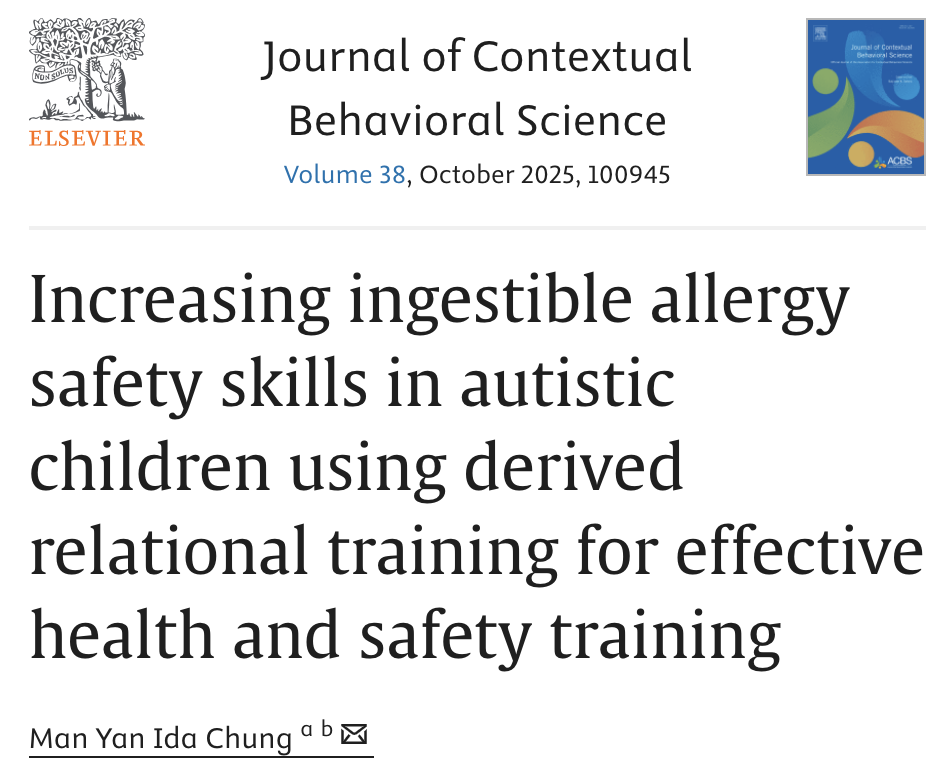Journal of Contextual Behavioral Science (JCBS)
Volume 38, October 2025
Authors
Man Yan Ida Chung
Key Findings
Derived Relational Training (DRT) effectively teaches allergen identification and avoidance. • Participants generalized learned refusal responses to novel, untrained allergens. • Real-world application was observed, with a participant independently refusing an allergen. • Findings highlight DRT's potential to promote autonomy in autistic children and allergies. • Study supports integrating DRT into safety interventions for real-life allergen management.
Abstract
This study examined the use of Derived Relational Training (DRT) to teach autistic children to identify and avoid ingestible allergens. Given the limited research on interventions that support independent allergy management in autistic populations, the study assessed whether DRT could facilitate allergen recognition, refusal responses, and generalization to novel but related stimuli. Using a single-subject design, participants received a relational training intervention grounded in Relational Frame Theory (RFT), incorporating multiple exemplar training to establish A→B (allergen to reaction) and B→C (reaction to refusal) relations. The emergence of the untrained A→C relation and generalization to A→D (novel allergen) were then evaluated. Three participants, aged 5 to 12, completed baseline, intervention, generalization, and maintenance phases. Data were analyzed via visual inspection of changes in trend, level, and variability across conditions. Results indicated that all participants acquired the trained relations, demonstrated derived relational responding, and generalized refusal behaviors to untrained allergens. These findings extend the application of DRT to safety skill instruction and support its utility in teaching flexible, functional behavior in applied settings for autistic children.
